
This post is a collection of many free resources from the web and some materials I have created that will help your students learn about contractions. Enjoy these contraction activities including online games. Discover great books to read. You’ll find songs and videos.
The final activities are for more advanced students who know how to work with contractions but may not realize how they can be used to enhance their narratives, poetry, and other types of creative writing. Be sure to scroll down to the bottom of the post to check out these ideas.
Students will come away not only knowing how to use contractions but will have fun as they learn about them.
Begin by downloading the handout here. You will find word lists, the fan organizer, and other teaching ideas mentioned in the post.
Contraction Activities and Teaching Ideas
Teaching Ideas #1 – Books

Using books is a great hook activity for a contraction lesson.
Here are two titles you might like:
I’m and Won’t, They’re and Don’t: What’s a Contraction? by Brian P. Cleary
If You Were a Contraction (Word Fun) by Trisha Speed Shaskan
Teaching Ideas #2 – Fan Organizer
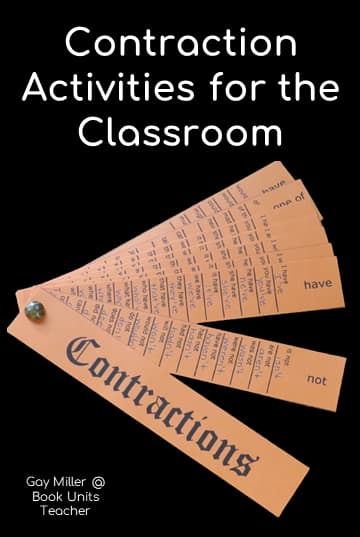
If contractions are something you regularly teach, you probably have a variety of contraction-matching activities. I’ve seen really cute matching activities for just about every holiday or theme imaginable. So… to be a little different, I have included a fan graphic organizer for your lesson. The graphic organizer contains the following contractions:
- not
- be
- will
- would
- have
- had
- one-of-a-kind contractions such as of-the-clock and Jack-of-the-Lantern
Print the pages on cardstock. Cut the strips apart. Have the students write contractions for each word. When completed, connect the strips with a brad. This creates a fan organizer. Students can store these in an interactive notebook. They make a great quick check guide for spelling contractions correctly.
Teaching Ideas #3 – Contraction Activities and Ideas from the Web

Education.com has a series of free printables to help teach contractions.
Lisa Elliot posted this great idea. Using Paint Clips to make Organizers looks like colorful fun.
Common Core Corner created this free activity. Students perform surgery by cutting the word cards in half. Next, they cut off unneeded letters. The remaining two halves are taped back together as a contraction.
Learn how to perform Contraction Surgery from Mandi Moore.
Members of Super Teacher Worksheets can print out puzzles and games. Non-members can enjoy a printable practice.
Teaching Ideas #4 – Printable and Online Games on the Web
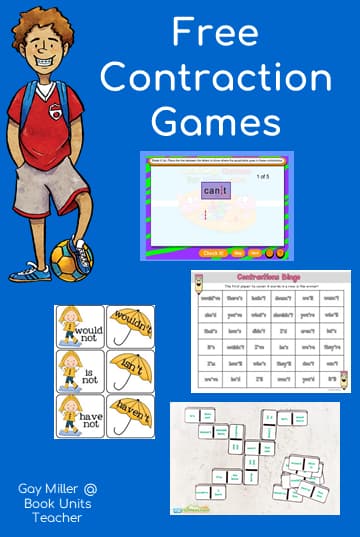
Caitlyn Jackson created Contractions for a Rainy Day for your literary centers. These cute matching cards would make a fun memory game.
Teacher’s Take-Out created Contraction Bingo. This is great for small groups.
Beth Gorden created Contraction Dominoes. This activity practices with 50 contractions. Great for students in 2nd through 5th grades.
Teaching Ideas #5 – Videos

Contraction Lesson and Music Activity

A Contraction Has An Apostrophe | Science of Reading | Phonics Song | EduTunes With Miss Jenny

Enjoy this Contractions: Free Music Video, Activities and Workshop Footage instructional video from Grammar Songs by Melissa.
Clicking on the image takes you to Teachers Pay Teachers were you can watch this free video.
Teaching Ideas #6 – Using Contractions to add Voice to Characters
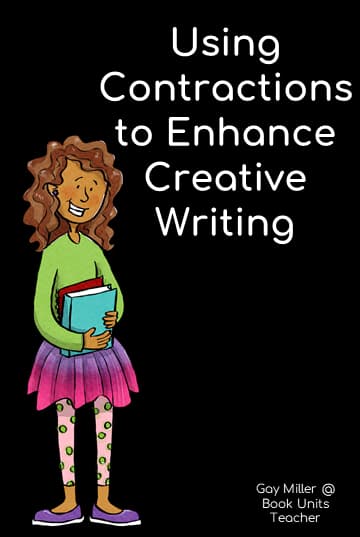
I’m sure students have come across some contractions like these:
t’was – it was
ne’er – never
’twas – it was
e’en – even
’til – until
’tis – it is
These unusual contractions are a type of writing device used to represent speech patterns or a historical time period. They are used by writers to create a sense of realism in their work. They are also used to reflect regional dialects or to give a sense of character to a person’s speech.
A more detailed list of unusual contractions can be found in the handout.
Teaching Ideas #7 – Grammar Meets Storytelling
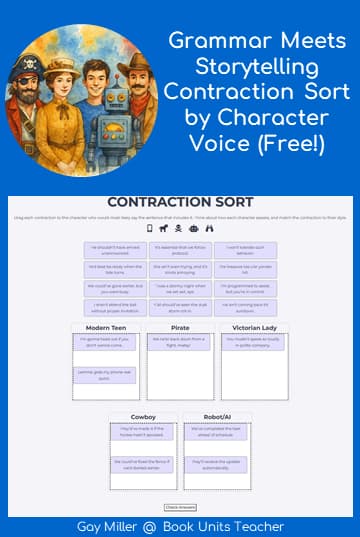
Writers use contractions to shape how characters speak, think, and feel. Some contractions are modern and casual like gonna, wanna, or lemme. Others are historical or regional like ’tis, ne’er, or y’all’d’ve. These choices help readers understand a character’s background, mood, or time period.
In this activity, students explore how contractions give voice to characters. They’ll sort contractions by when and how they’re used – some are old-fashioned, some are conversational, and some reflect regional dialects.
Teaching Ideas #8 – Using Contractions to Indicate Historical Periods
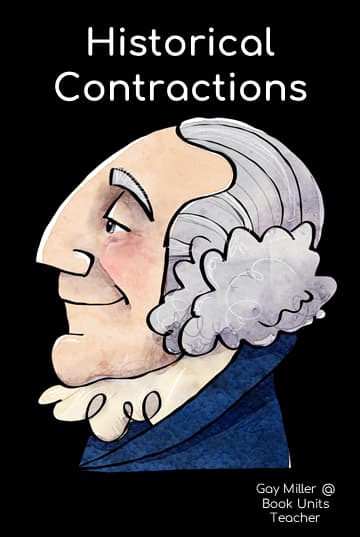
Using historical contractions in creative writing can add authenticity to a piece. It can also help to establish the character’s background, education level, social status, and regional origin.
For example, if a writer were to set a story in the 19th century, using contractions such as “shan’t” or “‘aven’t” can indicate a lower social class or a regional dialect. On the other hand, using more formal language without contractions can indicate a higher social class or level of education.
A list of historical contractions by time period is also included in the handout.
If you missed the link at the top of the post for the handout, here it is again.
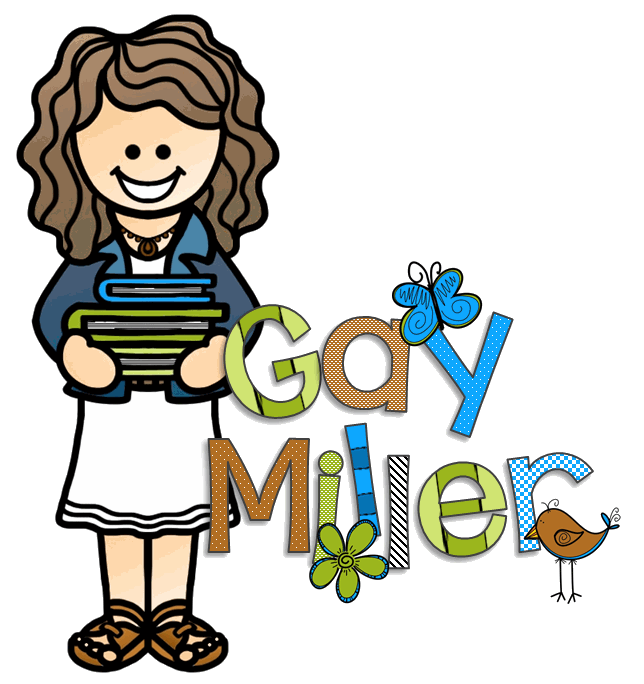


2 comments
Hey there! I simply wish to give you a big thumbs up for your excellent information you have right here
on this post. I am returning to your web site for more soon.
Keep this going please, great job!